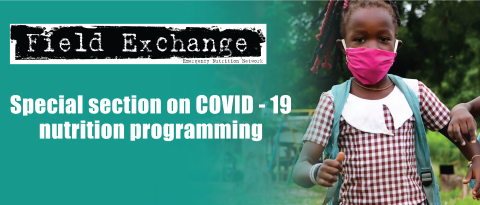Post-discharge interventions for children hospitalised with severe acute malnutrition
Research Snapshot1
It is well-evidenced that children hospitalised with severe acute malnutrition (SAM) have poor long-term outcomes following discharge including high rates of mortality, relapse to acute malnutrition, risk of infection and impaired cognitive development. While this evidence has resulted in calls for better support for children following discharge from inpatient treatment, there is currently minimal guidance and evidence on how to achieve this.
This systematic review and meta-analysis examined the types and effectiveness of post-discharge interventions for improving outcomes in children 6-59 months of age recovered from complicated SAM. Peer-reviewed and grey literature was searched in December 2019; 15 articles were found, representing 10 studies in seven countries. Interventions identified in the papers included the provision of zinc, probiotics, antibiotics, pancreatic enzymes and psychosocial stimulation.
There was no evidence that zinc reduced mortality post-discharge in the single study reporting deaths. The two studies that gave probiotics did not find significant differences in post-discharge mortality, however the meta-analysis of the combined data suggested that prebiotics did reduce mortality (relative risk (RR): 0.72; 95% CI: 0.51, 1.00; P = 0.049). Antibiotics reduced post-discharge infectious morbidity but did not reduce mortality. Pancreatic enzyme supplementation reduced inpatient mortality (37.8% compared with 18.6%, P < 0.05) but there was no evidence of benefit on post-discharge outcomes. All studies providing psychosocial stimulation found improved neurodevelopmental scores in one domain and meta-analysis showed an associated reduction in post-discharge mortality (RR: 0.36; 95% CI: 0.15, 0.87).
Other interventions of potential relevance that were not incorporated here as they were applied to outpatient SAM recoverees include cash transfers, water treatment packages and consideration of optimal timing of antiretroviral therapy initiation in HIV-infected children.
The authors summarise that there is currently limited evidence to inform post-discharge interventions in children recovered from complicated SAM despite the urgent need for evidence. Only 10 trials from the past five decades met the inclusion criteria. Several biomedical and psychosocial approaches show promise but further exploration is required.
1Noble, C C, Sturgeon, J P, Bwakura-Dangarembizi, M, Kelly, P, Amadi, B and Prendergast, A J (2021) Postdischarge interventions for children hospitalized with severe acute malnutrition: a systematic review and meta-analysis. The American journal of clinical nutrition, 113(3), pp.574-585.


